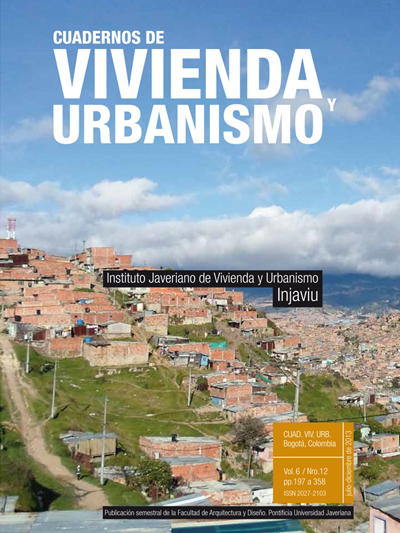Abstract
Due to high population growth and the ineffectiveness of planning for our Latin American cities, they have been expanded in a piecemeal fashion. The traditional solution to organize the urban functional structure has been the improvement of its road system. Although the primary avenues and road circuits of cities are expanded and remodeled, with the increase in population and vehicles they end up congested. The text shows how these extensions in initial roadwork have a social benefit (lower travel times), but then they begin to generate a social cost, since the travel time rises due to increased downtime resulting from congestion. In conclusion, it offers a view to twenty five years of the increasing social cost urban population must pay for these failed urban policies that favor the use of cars against public transport.
This journal is registered under a Creative Commons Attribution 4.0 International Public License. Thus, this work may be reproduced, distributed, and publicly shared in digital format, as long as the names of the authors and Pontificia Universidad Javeriana are acknowledged. Others are allowed to quote, adapt, transform, auto-archive, republish, and create based on this material, for any purpose (even commercial ones), provided the authorship is duly acknowledged, a link to the original work is provided, and it is specified if changes have been made. Pontificia Universidad Javeriana does not hold the rights of published works and the authors are solely responsible for the contents of their works; they keep the moral, intellectual, privacy, and publicity rights.
Approving the intervention of the work (review, copy-editing, translation, layout) and the following outreach, are granted through an use license and not through an assignment of rights. This means the journal and Pontificia Universidad Javeriana cannot be held responsible for any ethical malpractice by the authors. As a consequence of the protection granted by the use license, the journal is not required to publish recantations or modify information already published, unless the errata stems from the editorial management process. Publishing contents in this journal does not generate royalties for contributors.


